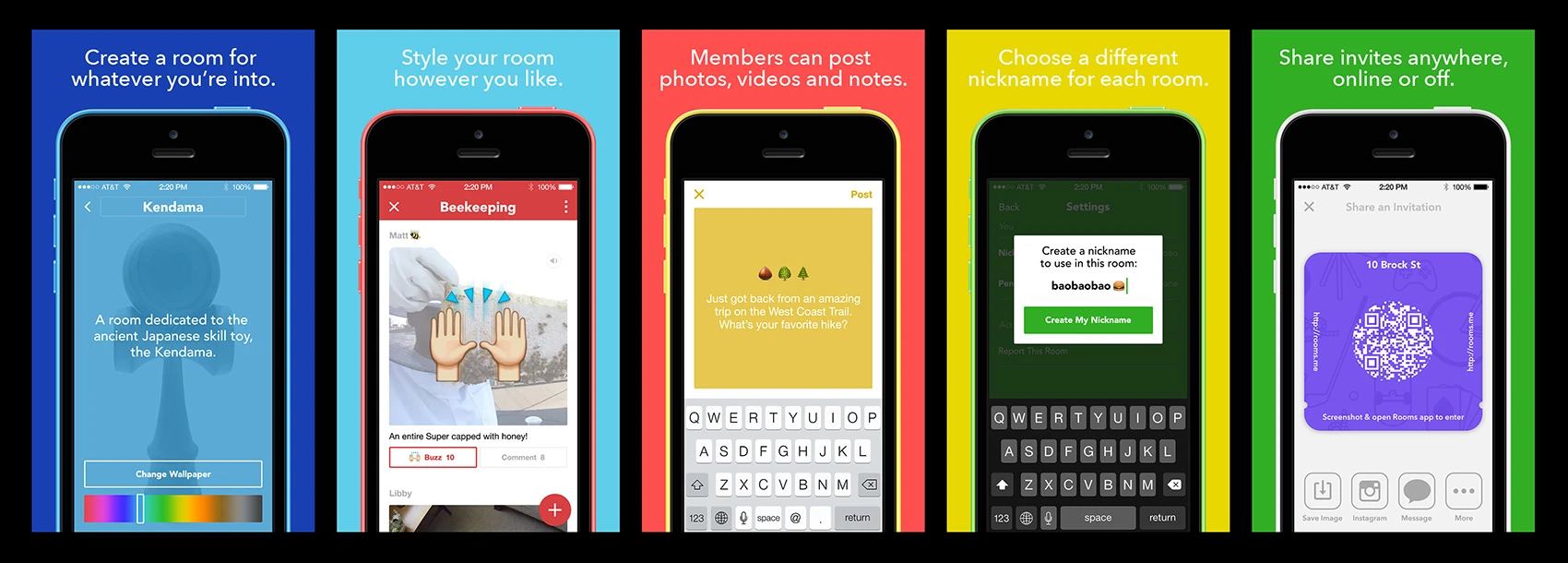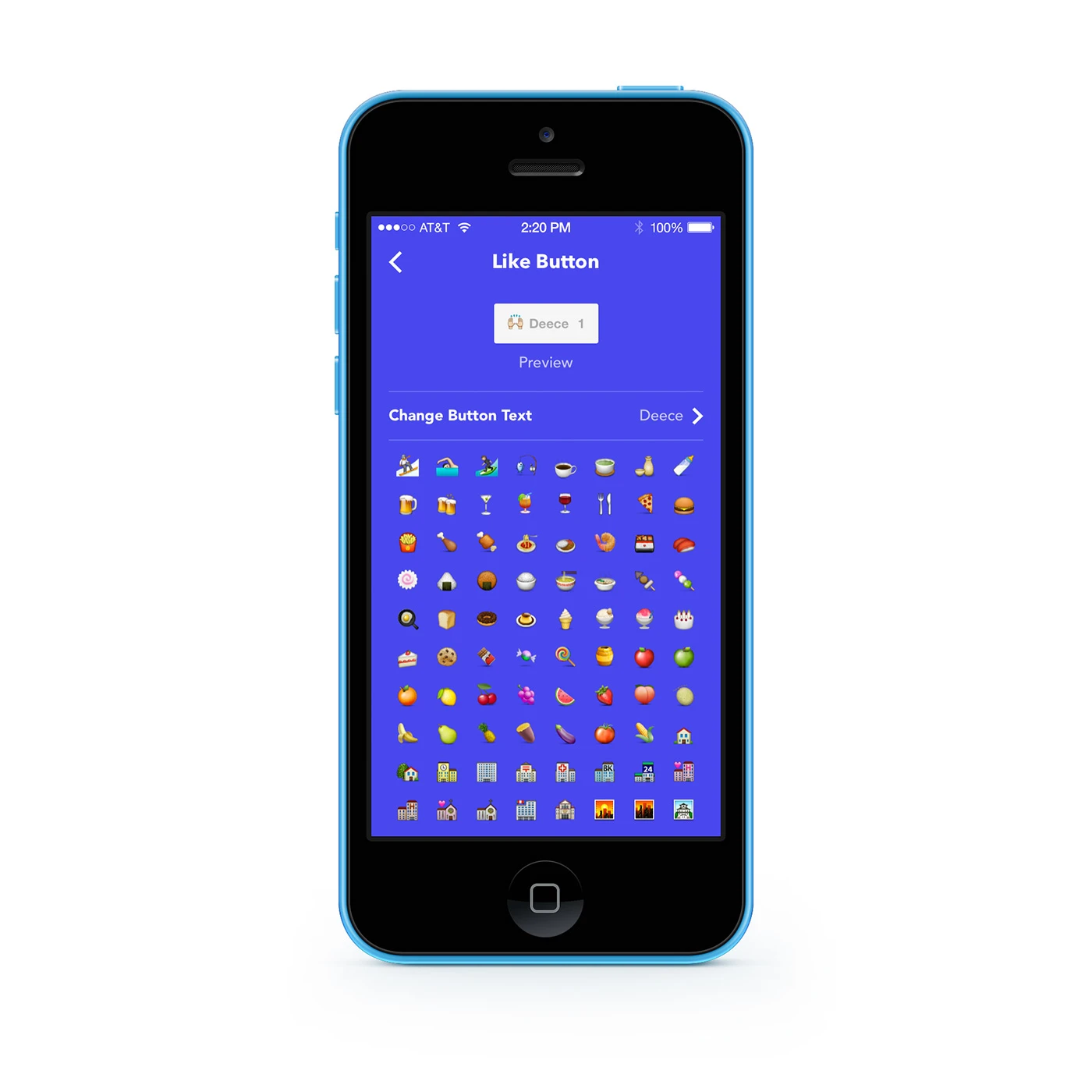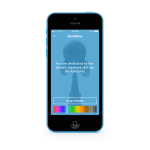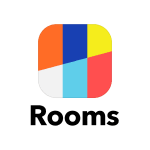Web forums may not be pretty, but they’ve long been popular. Just browse Yahoo Groups or Reddit, and you’ll see the vast array of interests that can sprout deeply engaged communities. Facebook’s newest “Creative Labs” app, Rooms, aims to bring the spirit of online forums to a mobile-friendly format.
Rooms is an app for creating and participating in groups focused around interests. Josh Miller, who joined Facebook through the acquisition of his conversation platform Branch, and its sister site, Potluck, led the new app’s development.
Like many designers of late, he took inspiration for Rooms from the pre-Facebook age.
Before Facebook, people controlled how their content worked. If you posted a WordPress blog, nobody even had to know it was a WordPress blog. Your MySpace page may have been, as Miller says, “fugly,” but it was fun to have creative control over your own page. By contrast, all tweets, Facebook profiles, and Medium posts look pretty much the same.

But not Rooms. When users create new Rooms, they can control things like the background color, what the “Like” button will look like, and the emoticon that will appear over a post when someone pushes that “Like” (or “hate” or whatever the group creator decides) button. On the one hand, as far as customability goes, that’s pretty small beans. On the other hand, Rooms doesn’t have the Facebook logo splashed all over it.
Before Facebook, people used pseudonyms in online social contexts instead of their real names. This allowed them to present themselves in different ways for different purposes. They could be gamergurl89 on the World of Warcraft forum and bestm0mever on the parenting forum. Facebook made using your real identity mandatory.
But not Rooms. It will allow people to sign up for different groups with different names. It doesn’t even connect to your Facebook account or use Facebook sign-in.
Before Rooms, people discovered new sites through links, because one of the sites they visited regularly linked to another site. Now people find links through search.
But not Rooms. There is no discoverability built into the app. Instead, it will rely on a clever replacement for a link that embeds a QR code into a photo. Users need only take a photo or screenshot of that code–either from an IRL printed poster or a virtual post someone makes in another Room group or on a social network. The app automatically reads it in their camera rolls and admits them to the group.
Despite borrowing old-school ideas about how the Internet should work, Rooms is designed to appeal to people who never saw the old-school Internet. “We really like message boards and forums, but we’re now kind of getting older,” Miller says. “We tried to design this with people who have only used Instagram and Snapchat and Facebook in mind.” That explains Room’s Instagram-like feeds.

So far Rooms’s siblings from Creative Labs–Slingshot and Paper—haven’t exactly shot to the top of the App Store. Miller argues that’s not a problem. “Facebook operates at such a scale that there’s a lot of pressure around ‘oh, it’s been two months, and it’s not the next big thing,’” he says. “But anyone will tell you that Snapchat and Twitter took a while to take off.”
In any case, he’s not concerned about Rooms becoming an instant blockbuster. So far the growth strategy involves emailing people who lead Internet communities and asking them to start Rooms. Those people control how their rooms are promoted.
“It’s a feature, not a bug, that it’s hard to find these places,” Miller says, explaining how old-school Internet sites like MetaFilter benefited from only being found, via a link, by people who were already active in a similar community elsewhere. “It kept the quality high and made the people endeared to the space because it felt like their corner of the Internet.”
Recognize your brand’s excellence by applying to this year’s Brands That Matter Awards before the final deadline, June 7.
Sign up for Brands That Matter notifications here.





